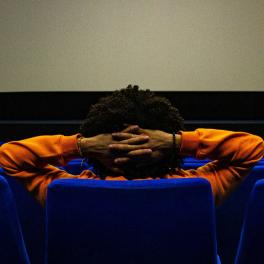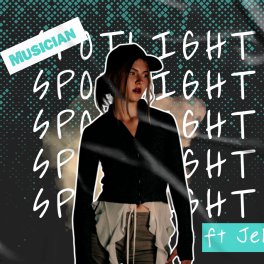
Lizzy is a 24-year-old VoiceBox content creator and Ambassador. She studied Film and Philosophy (MA) at King’s College London. She’s now a production coordinator and works as an extra in her spare time. We spent some time chatting to her about her passion for film and production. You can check out her published VoiceBox pieces here.
Thanks for joining us today, Lizzy. What got you so excited about film growing up?
That’s a good question. I’ve actually thought about that a lot recently because I’m not too sure. There were a lot of things I loved about film as a kid. I do recall vividly having a completely out of body experience watching three films in particular when I was around 11. One film was Harry Potter and the Prisoner of Azkaban (2003). That may sound basic, but seriously, the directing of that film is brilliant. I am particularly drawn to in-depth aesthetic building, from the cinematography to the score. The other two films were Pride and Prejudice (2005), which was so brilliantly composed and shot, and A Series of Unfortunate Events (2004), which has an incredible score by Thomas Newman and amazing costume design.
What’s your favourite thing about film? Is there a particular element that you’re most passionate about?
I love worldbuilding and aesthetics, it really gives a sense that a film has been loved down to the final detail. A film could have an amazing screenplay, but if it is poorly executed, then its potential is kind of lost. Another thing I have become obsessed with lately is editing. Watching and considering how something is edited and why certain choices are made.
Have you ever taken part in a production yourself?
Yes, I have. A number of short films while studying, and my work currently requires me to work on a production line for content and broadcast, including film. My favourite personal project was the assignment I was given in a group where we had to adapt the story of A Winter's Tale by William Shakespeare into a film in the style of Akira Kurosawa. It was so much fun to do.
You wrote your master's thesis on the Joker. Tell us a bit about that.
I watched a film called The Gentleman in the cinema, where I was clearly not the target demographic and found myself not only disturbed by how dangerous the messaging of the film could be but also how easy it is to hide dangerous and subliminal messaging in film. Of course, it isn’t as simple as that; everything is subjective, and a film that is controversial does not mean it is bad. But it got me thinking about films and content that clearly strike a chord with certain demographics. At the time, there were a lot of memes on the internet about the movie Joker as an example of a film that pandered to a certain type of stereotype, specifically the ‘film bro’.
When I did further research into why the Joker hits a chord with this stereotype, there was a huge amount of information on the character being associated with Incel culture, which is a phenomenon that can be correlated to a number of socio-cultural issues such as basic capitalist culture to the American hero. It also seems that The Dark Knight and Heath Ledger's portrayal of the Joker was a particularly effective and glorified version of the character. It’s fascinating!
So, really, I wrote this thesis to prove that sociological patterns can be tracked through film. It just so happened that I thought the Joker and Incel culture was a good example to use, the character became a pop culture phenomenon at a time when Incel culture was becoming ‘mainstream’, and people found an answer in its portrayal, which returned to the spotlight after Ledger's performance in 2008.
Do you think AI is going to change the film industry?
Oh yeah, definitely. There is a brilliant tweet by user Santiago (@svpino) that says, ‘AI will not replace you. A person using AI will.’ AI is already changing the film industry, and it isn’t an overtly bad thing. Knowledge is power, so the more we know about AI, the more we will understand how to regulate and utilise it. There are already creative companies making films using AI, I recommend looking at the portfolio of [Ai]magination, these guys are brilliant and very effective at what they do.
What’s your take on film and video games? Will the two eventually merge?
They already are. I remember the first thing we did in my undergrad film course was play Until Dawn, a 2015 video game. The game was very interactive in terms of choosing your own ending narrative, and visually, it was very cinematic. In 2018, Black Mirror attempted a choose-your-own ending episode called Bandersnatch. It had varying results and responses from audiences, but it was interesting to see one of the first mainstream forms of video game narrative in film and TV. Plus, video games are, in general, becoming more cinematic, and more production studios are looking to famous video games to adapt and learn from. I recommend watching The Last of Us (2023) and Fallout (2024); both are so good.
What’s your favourite film of all time?
Omg, don't ask me that. Erm….I have a top seven? But they are in no particular order.
- Coraline
- Zone of Interest
- Haider
- The Prisoner of Azkaban
- O Brother, Where Art Thou?
- Pearl
- The Sound of Music
If you could direct your dream movie, what would it be?
There are too many choices! But a lovely one to do would be an adaptation of either The Binding by Bridget Collins or North and South by Elizabeth Gaskell.
For the chance to be featured in an interview of your own, feel free to email your ideas to info@voicebox.site!
Support Young Creators Like This One!
VoiceBox is a platform built to help young creators thrive. We believe that sharing thoughtful, high-quality content deserves pay even if your audience isn’t 100,000 strong.
But here's the thing: while you enjoy free content, our young contributors from all over the world are fairly compensated for their work. To keep this up, we need your help.
Will you join our community of supporters?
Your donation, no matter the size, makes a real difference. It allows us to:
- Compensate young creators for their work
- Maintain a safe, ad-free environment
- Continue providing high-quality, free content, including research reports and insights into youth issues
- Highlight youth voices and unique perspectives from cultures around the world
Your generosity fuels our mission! By supporting VoiceBox, you are directly supporting young people and showing that you value what they have to say.





